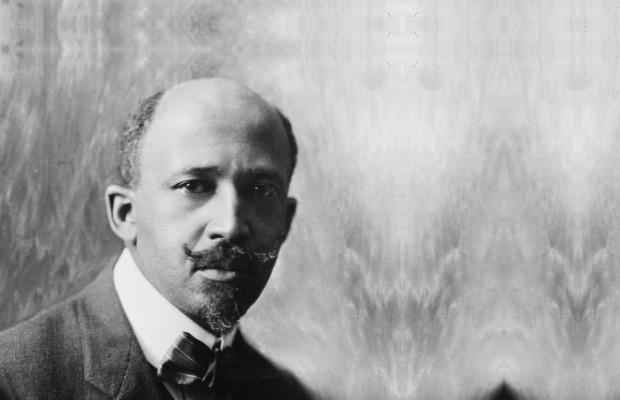African Political Thought, Part 1: Race and Romanticism

Part 1 of this new online course introduces you to the writings of W.E.B. Du Bois, the Pan-African Congress, Leopold Senghor’s notion of “˜negritude’, and much more.
Over the next 10 weeks, African Arguments is delighted to be bringing you a short online course in African Political Thought. The course will be hosted by Stephen Chan, Professor of World Politics at the School of Oriental & African Studies (SOAS), and will consist of a series of 10-minute video lectures. These lectures will cover aspects of African political thought from the period preceding decolonisation, to the years of independence, and up to the present day.
Each week, a short reading list will be published alongside the lecture. Viewers are also encouraged to pose questions they have for Chan in the comments section below.
If you’d like to get an update when new episodes go up, please send an email with subject line “APT” to [email protected] and you’ll be notified when new lectures are posted.
The focus of Part 1 is:
Antecedents: race and romanticism in Africa – from WEB du Bois to the Manchester Conference to Senghor’s “˜negritude’.
For an audio-only version:
Reading list for Part 1
Guy Martin, African Political Thought, New York: Palgrave Macmillan, 2012.
Edmond Wilmot Blyden, Christianity, Islam and the Negro Race, Baltimore: Black Classic, 1994.
WEB du Bois, The Souls of Black Folks, New York: Penguin, 1996.
CLR James, The Black Jacobins: Toussaint L’Ouverture and the San Domingo Revolution, New York: Random House, 1963.
John Henrik Clarke with Amy Jacques Garvey (ed.), Marcus Garvey and the Vision of Africa, New York: Random House, 1974.
Coming next…
- Part 2: The thought of liberation: Cabral and the Lusophonic thinkers; the “˜pacific’ counterpoint of Kaunda.
- Part 3: The New African Man: the political thought of transformation – Kaunda, Nyerere, Obote, Nkrumah.
- Part 4: The degeneration into “˜Big Men’: case studies of Mobutu and Banda; the critique of Mbembe.
- Part 5: The coup “˜artists’ and the new nationalisms-on-command: from Gowon to Rawlings; the contrasts between Sankara and Amin; the contrasts and similarities between Obasanjo and Abacha.
- Part 6: The old liberationists and their reassertion in new nationalisms: Mugabe’s political thought.
- Part 7: Africa in the world: Mbeki’s African Renaissance – nostalgia and the toleration of the carnivalesque; Ngugi’s linguistic chauvinism; Mandaza’s neo-Marxist retrospection.
- Part 8: The call for democracy: the critique of Soyinka; new constitutionalisms and the looking eastwards to China, Singapore and Malaysia; the model of Russian democracy.
- Part 9: On Yvonne Vera’s novel of trauma after liberation, gender equality and other equalities in constitution-building for nation-building.
- Part 10: African intellectual currents and philosophy today: going it alone vs integration with a hegemonic world; Africa and the ICC, Africa and electronic globalisation; the thought of the outlawed commons.








Interesting thoughts and a great lecture. Permit me to also say that Nigeria as also had, and still does have a great diversity (over 200) of ethnic groups with absolutely different languages and these were all able to put aside their differences lay their collective future in the hands of people like Obafemi Awolowo, Nnamdi Azikiwe, Tafawa Balewa who championed the cause for independence.
I’m looking forward to working my way through this. I do hope that women’s political thought, writings, activities in postcolonialism, etc., are included in this series. Women did and do play a critical and complementary role in shaping modern African societies, in public and private, yet are commonly not incorporated into classes and studies of Africa.
Ngugi’s linguistic chauvinism….will be interesting to hear about that
This is indeed most excellent and I am looking forward to following these lectures.
If I may offer a suggestion. Please consider offering only a voice cast as the video does pose a problem as to internet usage efficiency.
I am at present in DRC where I am advancing the civic civil social rule of law process procedure conversation.
ooooh! this should be good.
I am very delighted with the lecture of Professor Chan. I listened attentively, the lecture is comprehensive within the time limit. It covers large areas. Thank you.
I would like to see these lectures in printable format. It is a source of inspiration to young Africans whose knowledge of the propelling force of Africa is of paramount importance.
Monte, your wish is my command. We will be posting an audio-only version with every lecture alongside the video. Excellent suggestion.
Outstanding as the addition of audio will enhance the capacity of those who wish to participate in what promises to be a lecture series most excellent.
Thank you.
This looks great, love these kinds of things for my morning routine, keep them coming!
An outstanding series of conversations on what makes Africa Africa as Stephen
Chan explores the African social political public zeitgeist in a voice most accessible. I am looking forward to each future conversation.
I enjoyed this lecture and I would like to listen to more lectures. Please grant me access.